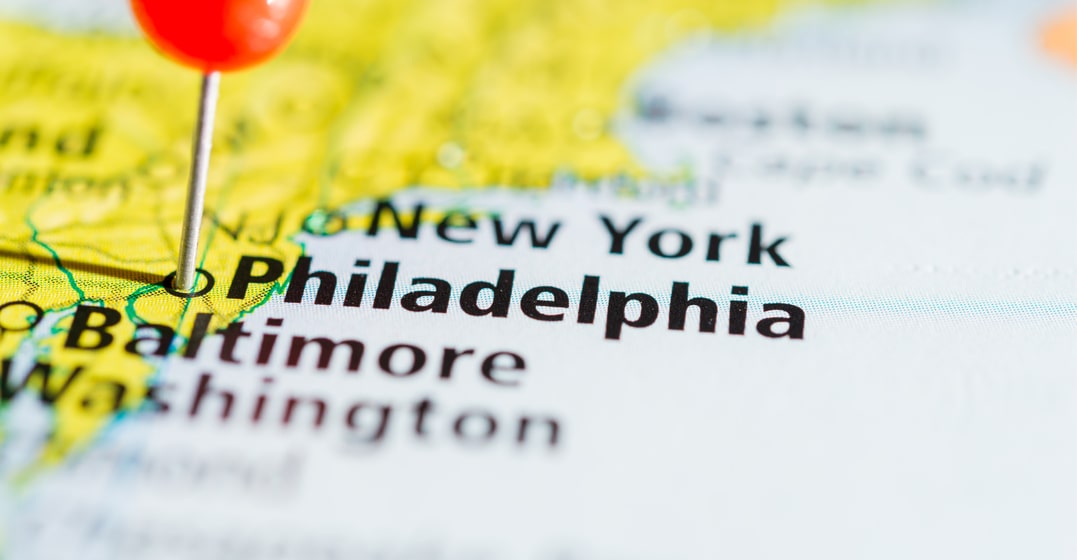Updated on October 15, 2024

This jawn: All you need to know about the Philadelphia accent

Philadelphia English is a distinctive dialect of American English characterized by its unique pronunciation and vocabulary. It is often compared to New York City English and is part of the Mid-Atlantic regional dialect pool. Fans of the Fresh Prince of Bel-Air will remember, “In West Philadelphia born and raised…” If that were true, what would you sound like? Did The Fresh Prince have a Philadelphia accent?
Let’s discover the iconic Philly accent and its cultural significance in our American accents tour.



The Philadelphia accent or “Philly accent” developed from the evolution of society in Pennsylvania’s capital city. Philadelphia is an important city in United States history. It’s where the Declaration of Independence was signed in 1776. Like its New York neighbor, English-speaking colonists from parts of England, Scotland and Ireland brought their accents to Philadelphia in the 17th century.
The Philly accent developed quite uniquely from its New England counterparts over the centuries. New York and New England accents are generally r-less or “non-rhotic” in words like park /pak/ or water /woa duh/. The Philly accent pronounces the r’s or is “rhotic.”
The Philly accent continues to change and develop today. Many people believe the Philadelphia accent is disappearing, but research has found that it’s just changing in different ways. Let’s go over some other unique pronunciation and grammar for this region.
The Philadelphia accent today is “rhotic” or r-pronouncing. There are some instances of non-rhoticity possibly found in South Philadelphia. But generally, all r’s are pronounced.
The Philadelphia accent will round many “o” sounds not unlike the rounding in the New York accent. The vowel sound in “on” becomes similar to the vowel in “dawn.”
The Canadian rising can be heard as well. Here, a simple vowel is elongated and turned into a diphthong. In the Philly accent, this occurs in words like “fight” and “like.”
The Philly accent uniquely pronounces the word “water” using more of a schwa sound. The schwa /Ə/ sound is found in words like “support” /sƏ port/and “banana” /bƏ na nƏ/. Philadelphians will say “water” /wƏ der/.
The long-e (eagle) and long-a (bagel) sounds are shortened before a “g.” The Eagles football team and bagels will have this unique pronunciation.
Words with /ih/ sounds like attitude or beautiful will get an /ee/ sound like “bee”.
Sometimes the Philadelphia accent will completely drop a letter. Some people mistake this for mumbling, but it’s a consistent trait of the Philly accent.



The Philadelphia accent is not commonly heard in movies or TV. By far, the Boston and New York accents overshadow the Philly accent in popular media. Here’s Kevin Bacon – a Philadelphia native – talking about his Philly accent and its place in movies.
The most famous fictional character from Philadelphia, Rocky Balboa, has an infamously inaccurate Philadelphia accent. The Fresh Prince of Bel Air doesn’t exhibit a particularly Philadelphia accent. It’s best to listen to locals from Philadelphia.
Here’s some slang that will help you understand and maybe speak like a Philadelphian.
| Slang | Meaning | Example |
| Yo | Hello | Yo! How’s it going? |
| Jeet? | Did you eat? | I’m hungry. Jeet? |
| Jawn | A thing; person, place or object | Gimme dat jawn. This jawn is packed. |
| Hoagie | A long sandwich; also known as a “sub” | Jeet? Let’s get a hoagie. |
| Water ice | A dessert with shaved ice flakes and sweet syrup | Nah, I wanna water /wƏder/ ice. |
The Philadelphia accent stands out from other accents or dialects on the East Coast of the United States. It pronounces the r’s, has unique vowel sounds and shortens a lot of words. The Philly accent continues to evolve, changing pronunciation and slang with each passing generation. If you’re ever in Philly and someone asks you “jeet?”, ask for a hoagie and you’ll fit right in.


